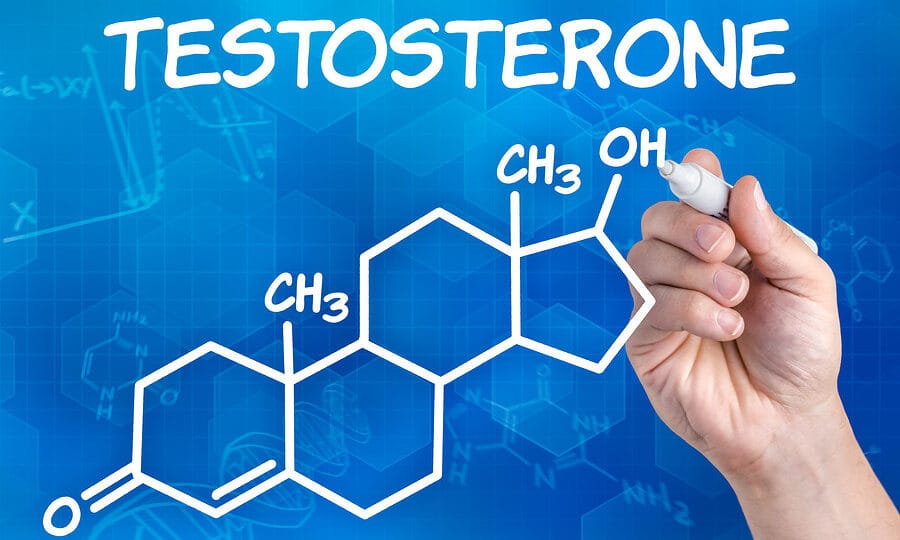
Overview
An essential hormone, testosterone is important for many bodily processes, especially in men. Although testosterone is frequently linked to masculinity, it is necessary for both men and women and affects energy levels, mood, bone health, and muscle growth. This blog will discuss what testosterone is, how it works, what a healthy person’s normal range is, and how to naturally raise your testosterone levels through exercise and diet.
What is Testosterone?
Men’s testicles and women’s ovaries create the majority of testosterone, a steroid hormone, with the adrenal glands producing trace amounts as well. It is a member of the androgen hormone class, which is widely known as “male hormones,” even though it is necessary for both sexes.
Key Functions of Testosterone
- Development of Male Characteristics: In men, testosterone drives the development of primary and secondary sexual characteristics such as deepening of the voice, facial hair growth, and increased muscle mass.
- Muscle and Bone Health: It promotes muscle protein synthesis, leading to muscle growth, and plays a critical role in maintaining bone density.
- Libido and Fertility: Testosterone is essential for a healthy libido and the production of sperm in men.
- Mood and Energy Levels: It influences mood, cognitive function, and overall energy.
- Fat Distribution: Testosterone helps regulate body fat distribution and aids in metabolic health.
Normal Levels of Testosterone in a Healthy Individual
Age, gender, and health status all affect the typical range of testosterone levels. The standard unit of measurement is nanograms per deciliter (ng/dL).
Men
- Normal Range: 300-1,000 ng/dL
- Testosterone levels peak during adolescence and early adulthood and gradually decline after the age of 30.
Women
- Normal Range: 15-70 ng/dL
- Although levels are significantly lower than in men, testosterone is vital for muscle strength, bone density, and sexual health in women.
Symptoms of Low Testosterone
- Fatigue and low energy
- Reduced libido
- Loss of muscle mass
- Increased body fat
- Mood changes such as depression or irritability
How to Naturally Increase Testosterone
There are several natural methods for people with low testosterone levels or those looking to improve their hormonal health. The following are some efficient diet and exercise strategies to raise testosterone levels:
1. Nutrition for Boosting Testosterone
Foods That Increase Testosterone

- Eggs: Rich in vitamin D and healthy fats, eggs support testosterone production.
- Fatty Fish: Salmon, mackerel, and sardines are excellent sources of omega-3 fatty acids and vitamin D.
- Leafy Greens: Spinach, kale, and Swiss chard are high in magnesium, which has been shown to boost testosterone.
- Nuts and Seeds: Almonds, walnuts, and pumpkin seeds provide healthy fats and zinc.
- Avocados: Packed with monounsaturated fats and vitamin E, avocados promote hormonal balance.
- Pomegranates: Known to improve blood flow and lower stress, which can indirectly support testosterone.
- Beef and Lamb: Contains zinc, iron, and other nutrients crucial for testosterone production.
- Bananas: Rich in bromelain, which is thought to boost testosterone levels.
Key Nutrients for Testosterone
- Vitamin D: Found in fatty fish, egg yolks, and fortified foods.
- Zinc: Present in shellfish, beef, and seeds.
- Magnesium: Found in nuts, seeds, and leafy greens.
- Healthy Fats: Monounsaturated and omega-3 fatty acids are essential.
2. Workouts to Boost Testosterone

Strength Training
- Engaging in weightlifting and resistance training is one of the most effective ways to increase testosterone levels.
- Focus on compound exercises like squats, deadlifts, and bench presses.
High-Intensity Interval Training (HIIT)
- Alternating between short bursts of intense exercise and periods of rest can boost testosterone production.
Maintain a Balanced Exercise Routine
- Overtraining can lead to increased cortisol levels, which negatively impacts testosterone. Ensure adequate rest and recovery.
3. Lifestyle Changes

- Get Quality Sleep: Aim for 7-9 hours of sleep per night, as testosterone production occurs during deep sleep.
- Manage Stress: High cortisol levels from chronic stress can suppress testosterone. Practice relaxation techniques like meditation or yoga.
- Maintain a Healthy Weight: Excess body fat, particularly around the abdomen, can lower testosterone levels.
- Stay Hydrated: Dehydration can impair physical performance and overall hormonal balance.
In conclusion
To preserve both mental and physical health, testosterone is essential. Although testosterone production normally decreases with age, it can be maximized by leading a healthy lifestyle that emphasizes nutrient-rich diets, frequent exercise, and stress reduction. Without using artificial supplements or drugs, you can boost your hormonal health and general well-being by implementing these natural changes.
A healthcare provider can offer tailored guidance and treatment choices, so always seek their counsel if you suspect low testosterone levels or suffer symptoms.
RELATED POSTS
View all


